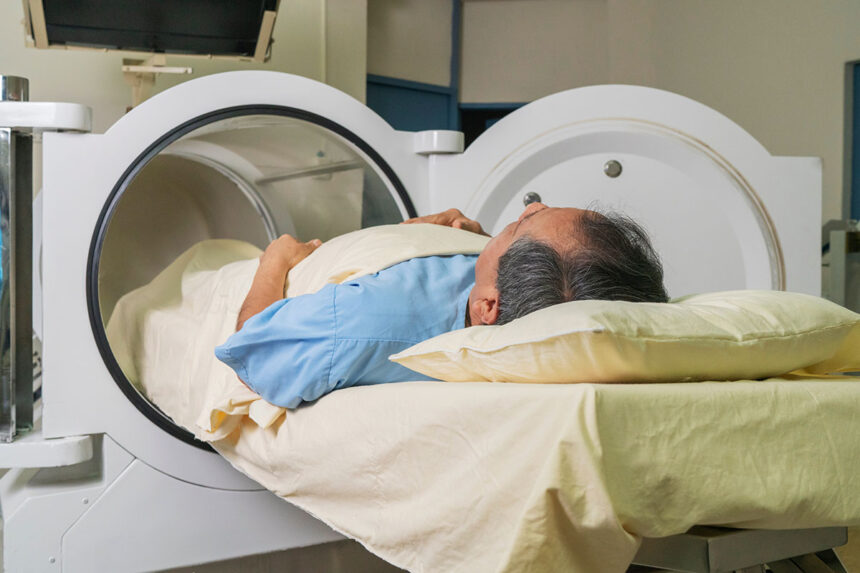Aging is an inevitable biological process, but recent advances in science suggest it might not be as irreversible as once thought. At the heart of this research lies a fascinating concept: telomeres. These tiny protective caps on our chromosomes could hold the key to slowing, halting, or even reversing the effects of aging. A study available on PubMed highlights the potential of telomere lengthening in combating aging and age-related diseases.
Telomeres are the biological clock of our cells, and understanding how to maintain or extend them is key to unlocking longevity.
Dr. Elizabeth Blackburn, Nobel Laureate in Physiology or Medicine and Telomere Research Pioneer
In this blog, we’ll dive into the science of telomeres, how they influence aging, and the promising developments in telomere-lengthening therapies.
What Are Telomeres and Why Do They Matter?
Telomeres are repetitive sequences of DNA located at the ends of chromosomes. Their primary role is to protect the genetic material from deterioration or fusion with neighboring chromosomes. Imagine telomeres as the plastic tips at the end of shoelaces—they keep everything intact and functional.

However, with each cell division, telomeres become shorter. This shortening is due to the “end-replication problem,” where the DNA replication machinery cannot fully copy the ends of linear chromosomes. Over time, telomeres become critically short, triggering cellular senescence (a state of permanent dormancy) or apoptosis (programmed cell death).
The Link Between Telomeres and Aging
Telomere length is a biomarker of cellular aging. Cells with critically short telomeres lose their ability to divide and function, contributing to the following:
- Tissue Degeneration: Organs and tissues rely on continuous cell renewal. Shortened telomeres hinder this process, leading to age-related decline.
- Chronic Diseases: Short telomeres are associated with conditions like cardiovascular disease, diabetes, and neurodegenerative disorders.
- Weakened Immune System: The immune system relies on rapidly dividing cells. Telomere shortening limits the production of new immune cells, reducing the body’s ability to fight infections.
Telomere Lengthening: A Potential Solution
Scientists have long speculated that extending telomere length could reverse or slow aging. Recent research has begun to turn this speculation into reality, with the study from PubMed offering insights into the mechanisms and potential therapies for telomere lengthening.

Telomerase Activation
Telomerase is an enzyme that adds DNA sequences back to the ends of telomeres, effectively rebuilding them. In most human cells, telomerase activity is minimal or absent. However, certain cell types—like stem cells, germ cells, and cancer cells—maintain telomere length through telomerase.
The study highlights experimental approaches to artificially activate telomerase in somatic cells. By reintroducing telomerase, researchers have shown:
- Restoration of telomere length.
- Improved cell viability and function.
- Reduction in markers of cellular aging.
Gene Therapy for Telomere Extension
Gene therapy is emerging as a promising method for telomere lengthening. By delivering genes encoding telomerase components, researchers can extend telomeres in aging cells. Early trials in animal models have demonstrated improved tissue regeneration, enhanced organ function, and even increased lifespan.
Small Molecules and Natural Compounds
Compounds like TA-65, derived from the plant Astragalus membranaceus, have shown potential in activating telomerase. These natural or synthetic molecules aim to stimulate the body’s own mechanisms for telomere maintenance.
What Does the Research Say?
The study on PubMed highlights several key findings:
- Telomere Lengthening and Cellular Function
Lengthened telomeres were found to restore youthful functionality in senescent cells, improving their ability to divide and repair tissues. - Impact on Lifespan
In animal models, interventions targeting telomere length led to increased lifespan and improved overall health markers, such as reduced inflammation and enhanced immune response. - Potential in Age-Related Diseases
Telomere lengthening showed promise in mitigating diseases linked to cellular aging, including cardiovascular and neurodegenerative disorders.
Challenges and Risks of Telomere Therapies
While the potential of telomere lengthening is exciting, there are significant challenges and risks to consider:
Lengthening telomeres is not just about extending life but about improving the quality of life by mitigating age-related decline.
Dr. Maria Blasco, Molecular Biologist and Telomere Researcher
- Cancer Risk
Uncontrolled telomerase activation is a hallmark of many cancers. Reintroducing telomerase could inadvertently promote cancerous growth in some cells. - Delivery Mechanisms
Ensuring precise and safe delivery of telomerase-activating therapies to targeted cells remains a technical hurdle. - Ethical and Regulatory Concerns
As telomere lengthening blurs the line between therapy and enhancement, ethical questions about accessibility, fairness, and unintended consequences arise.
Lifestyle and Natural Strategies for Telomere Maintenance
While advanced therapies are still under development, there are evidence-based strategies to slow telomere shortening naturally:

- Healthy Diet: Antioxidant-rich foods (e.g., berries, leafy greens) combat oxidative stress, a major contributor to telomere shortening.
- Regular Exercise: Moderate physical activity has been shown to maintain telomere length by reducing systemic inflammation and oxidative damage.
- Stress Management: Chronic stress accelerates telomere shortening. Practices like mindfulness, yoga, and meditation can counteract this effect.
- Adequate Sleep: Poor sleep quality is linked to shorter telomeres. Prioritizing restful sleep can support cellular health.
Future Directions in Telomere Research
The field of telomere biology is rapidly evolving, with exciting possibilities on the horizon:
- Personalized Telomere Therapies
Advances in gene editing and biomarker analysis could enable tailored therapies to restore telomere length in specific tissues. - Combination Approaches
Integrating telomere lengthening with other anti-aging strategies, such as senolytics (drugs targeting senescent cells) or cellular reprogramming, may yield synergistic benefits. - Human Trials
As preclinical studies yield promising results, the transition to human trials will be critical in understanding the safety and efficacy of telomere-targeted therapies.
Final Thought: A New Frontier in Aging Research
Telomeres play a pivotal role in aging, influencing cellular health, tissue regeneration, and susceptibility to age-related diseases. The potential to lengthen telomeres and reverse aspects of aging is an exciting frontier in medicine, as highlighted by recent research.
While challenges remain, ongoing advancements in telomere biology bring us closer to a future where aging is no longer an inevitable decline but a process we can influence and manage. By combining cutting-edge therapies with lifestyle interventions, we may soon unlock the secrets to a longer, healthier life.
As always, consult with healthcare professionals before considering any treatments or interventions targeting telomeres or aging processes.
Recent Insights into Promise of Telomere Lengthening
“Telomerase Activation Restores Cellular Function in Aging Models”
A recent study demonstrated that activating telomerase in aged cells restored their ability to divide and improved tissue regeneration. This intervention reversed several markers of cellular aging, highlighting its potential for age-related therapies.
Read the full study here.
“Gene Therapy Extends Telomeres and Lifespan in Mice”
Researchers used gene therapy to deliver telomerase components into aged mice, extending their telomeres and significantly improving lifespan. This approach also enhanced organ function and reduced inflammation, underscoring its promise for human applications.
Explore the findings here.
“Small Molecules Activate Telomerase for Anti-Aging Benefits”
A study published in Nature Communications identified small molecules that activate telomerase in human cells. These compounds extended telomere length and improved cellular function, offering a potential strategy for treating age-related decline.
Discover more here.
“Telomere Extension Delays Cellular Senescence in Human Cells”
Using advanced CRISPR technology, scientists successfully extended telomeres in human cells, delaying cellular senescence and improving metabolic activity. The research suggests a viable pathway for age-reversal therapies in humans.
Learn more about this study.
“Epigenetic Modulation and Telomere Maintenance in Aging”
A 2023 study revealed that combining telomere lengthening with epigenetic modulation rejuvenated aged cells, improving stress resistance and mitochondrial function. This integrated approach holds promise for comprehensive anti-aging solutions.
Read the insights here.
These findings highlight the transformative potential of telomere lengthening in reversing aging and addressing age-related conditions. While more research is needed to translate these findings into clinical therapies, the possibilities are groundbreaking. Always consult a healthcare professional before considering emerging treatments.


























Tell more about Lifestyle
surely